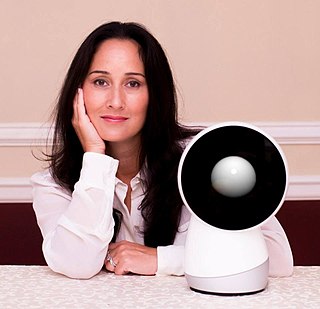A Quote by John Glenn
I think sometime we will go to Mars and I think we'll explore it with humans sometime, but I think it's really wise to do all the robotic exploration ahead of time and learn as much as possible. Once we have learned as much as possible with the robots, then that's the time to send people, and let them then continue the research that the robots have started.
Related Quotes
The exploration of space: Be it by humans or robots, based on the best choice for the mission and the most efficient means to return the data and science sought. Most of the time, this will mean we send robots due to cost and danger. But sometimes, we will need the irreplaceable judgment and descriptive abilities of a person on the spot.
Back in the twentieth century, we thought that robots would have taken over by this time, and, in a way, they have. But robots as a race have proved disappointing. Instead of getting to boss around underlings made of steel and plastic with circuitry and blinking lights and tank treads, like Rosie the maid on The Jetsons, we humans have outfitted ourselves with robotic external organs. Our iPods dictate what we listen to next, gadgets in our cars tell us which way to go, and smartphones finish our sentences for us. We have become our own robots.
Essentially every scientist, when posed with the question, "If you want to get science knowledge from Mars, do you want to send a geologist or do you want to send a robot?" Well, the real answer is, you can send 100 robots for the price of sending one geologist, so let's send 100 robots to 100 different locations, and then we would all benefit. So that's the answer you would get. And I agree with that answer.
When you're casting, you have to do quite a bit of research. But I always think you have to do it with a pinch of salt with actors, because it's so unfair to pigeonhole them and so often they are. I try to be as open as possible and if people are really interested and really want to have a go, then let's get them in and see them.
I think as much as possible, an artist, if he has any kind of social or political concern, has to…expose as much as possible what he sees so that some people think about things that they don’t normally think about… [Art] should be something that liberates the soul, provokes the imagination and encourages people to go further.































